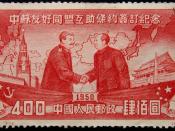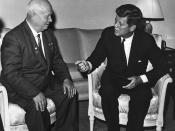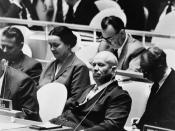Vladislav Zubok and Constantine Pleshakov have written a powerful book that covers the volatile period between 1945 and 1962 as seen by the Soviet leaders. They wrote this book using recently available Soviet documents, personal interviews, archived material, and their familiarity with the Russian culture pertaining to the Soviet Cold War policies under Joseph Stalin and Nikita Khrushchev. They addressed the Soviet Union's true intentions through a series of intimate portraits that take the reader into the minds of the Soviet leaders who shaped the foreign policies and showed their motivation for directing Soviet political life as they did. Perhaps part of why this book was so powerful, is they also completed both Soviet and American graduate studies.
The central interpretive argument of Zubok and Pleshakov to channel the understanding of Soviet foreign policy in the Cold War is a revolutionary-imperial paradigm that joined an imperial nature and interests from Russia's past and present with communist revolutionary ambitions that fused Russia's legacy with Marxism and Leninism.
Zubok and Pleshakov explore the shifting nature and components of this prototype in a series of chapters that begin with Stalin's perception with victory in hand in 1945, through Stalin's policies in the Cold War, to the efforts of his subordinates and successors-- Molotov, Beria, Malenkov and Khrushchev--to apply their own versions of this influential prototype.
By reviving the role of principles in shaping the perspective of Soviet policy makers, and, By providing key documentation of Soviet leaders - from Stalin to Khrushchev - expressing an ideological perspective in conversations with Soviet and other communist leaders, Zubok and Pleshakov have notably redirected the viewpoint of the American Cold War specialists who for decades have found it difficult to accept what historians of the Soviet Union have commonly recognized as an essential interpretive assertions.


